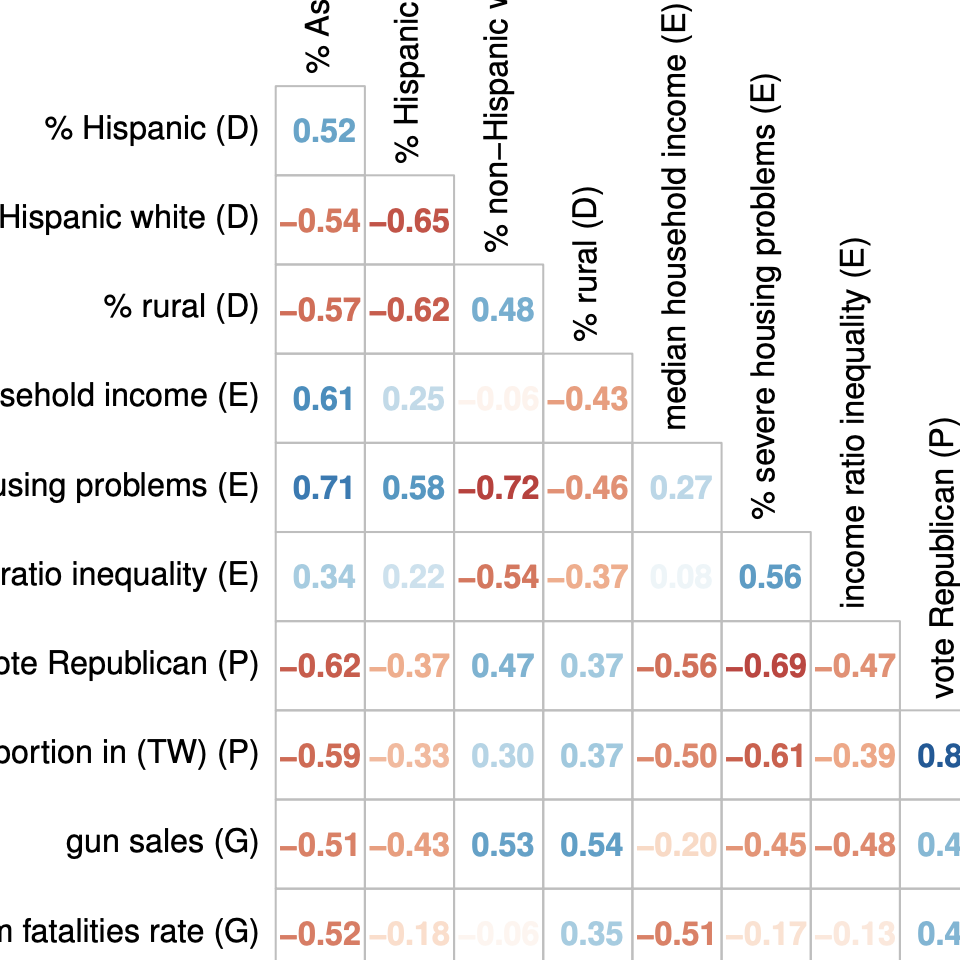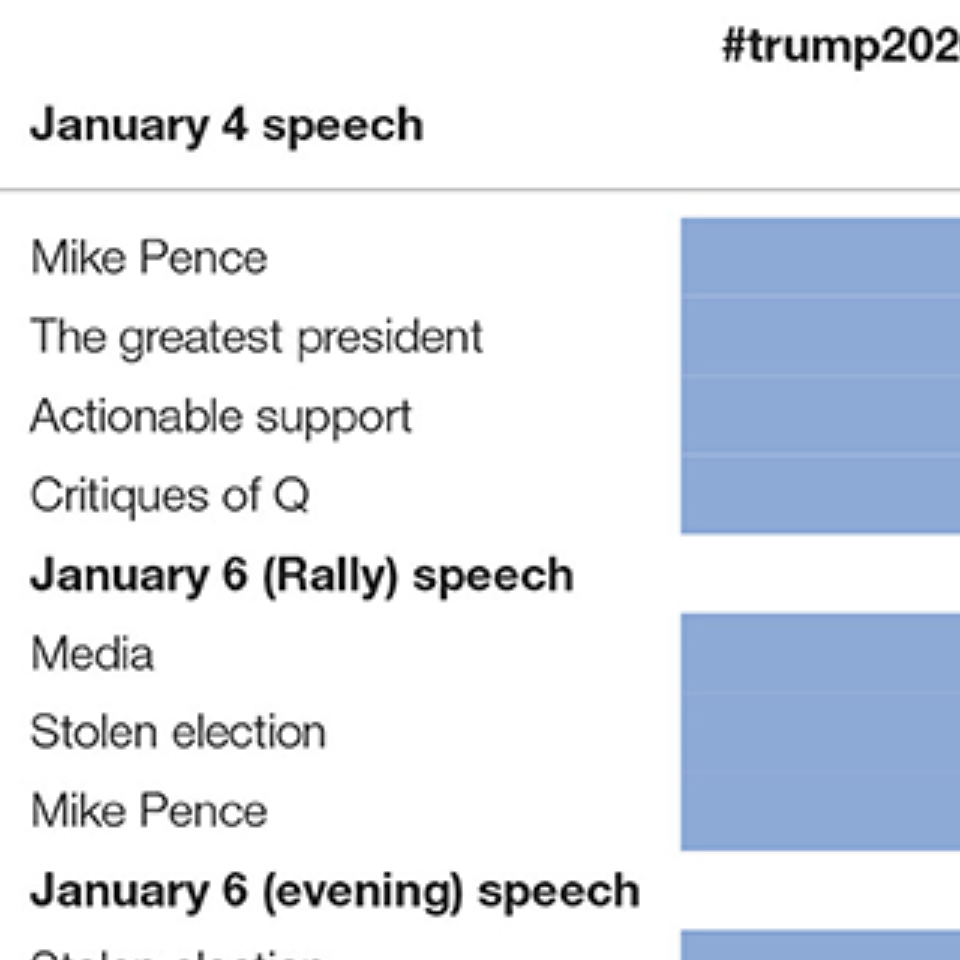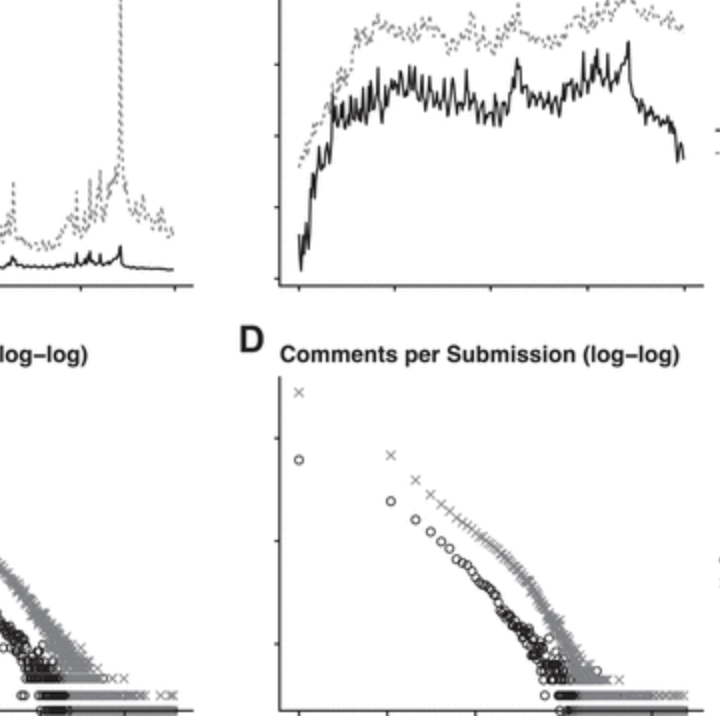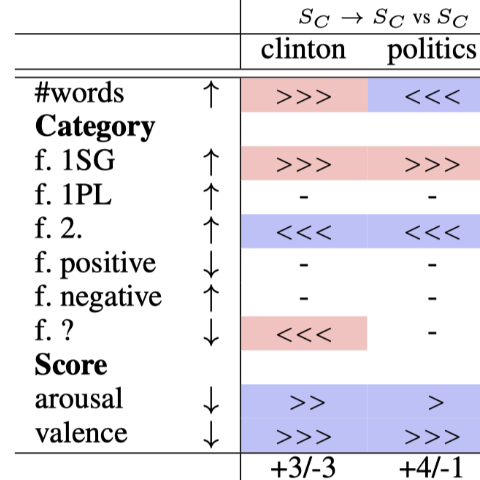Publications
A list of selected papers in which research team members participated.
For a full list see below or go to Google Scholar (Jisun An and Haewoon Kwak).
computational journalism
political science
network science
game analytics
AI/ML/NLP
HCI
online harm
dataset/tool
bias/fairness
user engagement
political science network science

The United States have some of the highest rates of gun violence among developed countries. Yet, there is a disagreement about the extent to which firearms should be regulated. In this study, we employ social media signals to examine the predictors of offline political activism, at both population and individual level. We show that it is possible to classify the stance of users on the gun issue, especially accurately when network information is available. Alongside socioeconomic variables, network information such as the relative size of the two sides of the debate is also predictive of state-level gun policy. On individual level, we build a statistical model using network, content, and psycho-linguistic features that predicts real-life political action, and explore the most predictive linguistic features. Thus, we argue that, alongside demographics and socioeconomic indicators, social media provides useful signals in the holistic modeling of political engagement around the gun debate.
Yelena Mejova, Jisun An, Gianmarco De Francisci Morales, Haewoon Kwak
ACM Transactions on Social Computing, 2022
AI/ML/NLP political science online harm

The transfer of power stemming from the 2020 presidential election occurred during an unprecedented period in United States history. Uncertainty from the COVID-19 pandemic, ongoing societal tensions, and a fragile economy increased societal polarization, exacerbated by the outgoing president’s offline rhetoric. As a result, online groups such as QAnon engaged in extra political participation beyond the traditional platforms. This research explores the link between offline political speech and online extra-representational participation by examining Twitter within the context of the January 6 insurrection. Using a mixed-methods approach of quantitative and qualitative thematic analyses, the study combines offline speech information with Twitter data during key speech addresses leading up to the date of the insurrection; exploring the link between Trump’s offline speeches and QAnon’s hashtags across a 3-day timeframe. We find that links between online extra-representational participation and offline political speech exist. This research illuminates this phenomenon and offers policy implications for the role of online messaging as a tool of political mobilization.
Claire Seungeun Lee, Juan Merizalde, John D. Colautti, Jisun An and Haewoon Kwak
Press coverage-PsyPost
political science

We investigate differences along these dimensions on the online forum Reddit by comparing linguistic patterns and content of comments in two subreddits focusing on a populist, Donald Trump (/r/The_Donald), and a center-left politician, Hillary Clinton (/r/hillaryclinton), during the 2016 U.S. presidential election campaign.
Andreas Jungherr, Oliver Posegga, Jisun An
Social Science Computer Review. March 2021.
political science

We use Reddit to explore the nature of political discussionsin homogeneous and cross-cutting communication spaces. Inparticular, we develop an analytical template to studyinter-actionandlinguistic patternswithin and between politicallyhomogeneous and heterogeneous communication spaces. Ouranalyses reveal different behavioral patterns in homogeneousand cross-cutting communications spaces.
Jisun An, Haewoon Kwak, Oliver Posegga, Andreas Jungherr
Proceedings of the 13th International AAAI Conference on Web and Social Media (ICWSM), 2019
Full List
Modeling Political Activism around Gun Debate via Social Media
Yelena Mejova, Jisun An, Gianmarco De Francisci Morales, Haewoon Kwak
ACM Transactions on Social Computing, 2022
5+ papers citing this work (Google scholar)
Storm the Capitol: Linking Offline Political Speech and Online Twitter Extra-Representational Participation on QAnon and the January 6 Insurrection
Claire Seungeun Lee, Juan Merizalde, John D. Colautti, Jisun An and Haewoon Kwak
Frontiers in Sociology, 2022
Press coverage-PsyPost
35+ papers citing this work (Google scholar)
Populist Supporters on Reddit: A Comparison of Content and Behavioral Patterns Within Publics of Supporters of Donald Trump and Hillary Clinton
Andreas Jungherr, Oliver Posegga, Jisun An
Social Science Computer Review. March 2021.
15+ papers citing this work (Google scholar)
Political Discussions in Homogeneous and Cross-Cutting Communication Spaces
Jisun An, Haewoon Kwak, Oliver Posegga, Andreas Jungherr
Proceedings of the 13th International AAAI Conference on Web and Social Media (ICWSM), 2019
65+ papers citing this work (Google scholar)
Sharing political news: the balancing act of intimacy and socialization in selective exposure
Jisun An, Daniele Quercia, Meeyoung Cha, Krishna Gummadi, Jon Crowcroft
EPJ Data Science volume 3, Article number 12, 2014
Partisan Sharing: Facebook Evidence and Societal Consequences
Jisun An, Daniele Quercia, Jon Crowcroft
Proceedings of the Second ACM Conference on Online Social Networks (COSN), 2014
110+ papers citing this work (Google scholar)
Fragmented Social Media: A Look into Selective Exposure to Political News
Jisun An, Daniele Quercia, Jon Crowcroft (poster)
Proceedings of the 22nd International Conference on World Wide Web (WWW) Companion, 2013